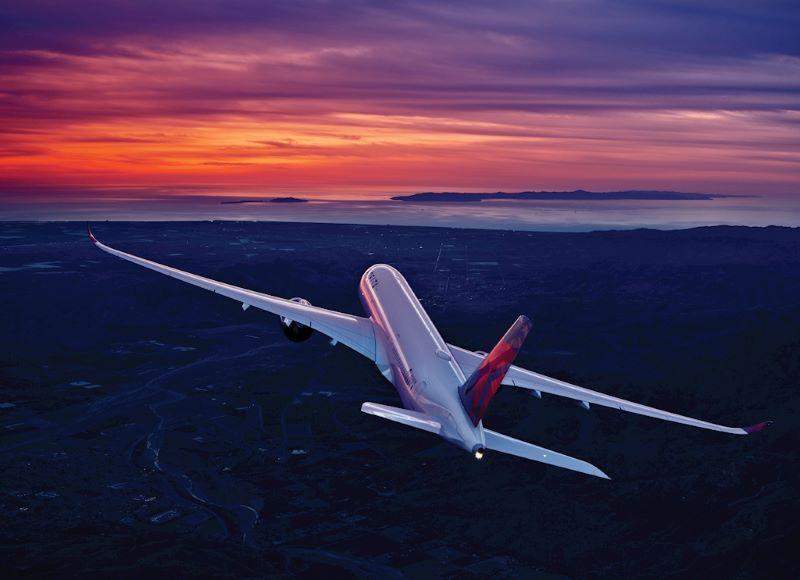
Delta Air Lines said it expects continued sales growth in the fourth quarter (Q4), after posting a record quarterly revenue performance in the third quarter (Q3), signaling that passenger demand remains resilient despite fears of an impending economic slowdown.
Surging consumer prices in the U.S. have yet to eat into red-hot travel demand, CEO Ed Bastian reported on the carrier’s Q3 earnings call Oct. 13. Revenues in the quarter totaled $12.8 billion on an adjusted basis, marking a 3% improvement over 2019 levels and a quarterly record for the company.
Strength in bookings has so far allowed Delta to pass on higher fuel and labor costs to customers in the form of higher fares without eating into demand. Airfares in September were up nearly 43% in the U.S. from a year earlier, according to Consumer Price Index data released by the U.S. Labor Department Oct. 13.
“While we are mindful of macroeconomic headwinds, the travel industry is experiencing a countercyclical recovery,” Bastian said, observing that consumer spending has shifted from goods to services in the later part of the pandemic recovery. “Global demand continues to ramp up ... as businesses return to travel and international markets continue to reopen.”
Key to Delta’s ability to pass on higher fares: industry supply constraints ranging from aircraft availability and higher fuel prices to pilot shortages and training bottlenecks. As such, the airline remains “cautious” about not deploying too much capacity to ensure the reliability of its operation, Bastian explained.
Demand in Q3 was strong across the board. Domestic revenues were 3% higher than Q3 2019, while international revenues recovered to 97% of 2019 levels. International sales are being led by transatlantic revenues, which were 12% higher than three years ago despite 11% less capacity. Pacific revenues continue to lag, down 51% from 2019.
International inbound sales have continued to improve despite a surging U.S. dollar, which makes it more expensive for foreign travelers to visit the U.S. Delta President Glenn Hauenstein attributed strong inbound sales to a “demand and supply imbalance existing right now” in international markets. He also said the strong dollar has been an added tailwind for outbound international bookings.
The corporate travel recovery continued in Q3, with sales returning to 80% of 2019 levels. Adding to the company’s optimism are survey results showing 90% of corporate accounts expect their travel to hold steady or increase in Q4. “We have growing confidence that, while there will be changes, corporate travel will fully recover and increased workplace flexibility is creating new travel patterns,” Hauenstein said.
On the regional side, Bastian said that he considers Delta to be “less exposed” to the regional pilot shortage than its competitors, noting the company has eliminated nearly all of its 50-seat aircraft as part of broader upgauging efforts. He said that management expects the demand for new regional pilots to stabilize in 2023—boosted by elevated new-hire rates—but does not expect the supply challenge to be fully resolved “until probably 2024-2025 at the earliest.”
Delta posted an adjusted net profit of $695 million in Q3 2022, compared to $1.5 billion in Q3 2019. Revenues totaled $12.8 billion, while operating expenses came to $12.5 billion. Unit costs, excluding fuel, were up 22.5% from 2019 levels, on 17% less capacity, while unit revenues improved 23%.
For Q4, the company is forecasting total revenues to improve to 5-9% higher than 2019 levels, with an operating margin of 9-11%.

